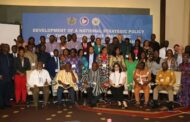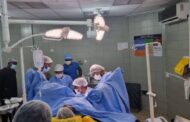Dr. Vida Nyagre Yakong, the Dean of the School of Nursing and Midwifery at the University for Development Studies (UDS) in Tamale, Ghana, has identified disturbing acts of examination malpractice, including candidates using forbidden materials concealed as menstrual pads.
This revelation comes at back of alarming extortions in nursing and midwifery training colleges to bribe external invigilators from Nursing and Midwifery council (NMC) and JUST.
Final year students in Nursing colleges are made to pay Gch800 to Ghc1000 each for this illegality.
Speaking at a graduation and matriculation ceremony in the Upper East Region, Dr. Yakong expressed concern about the rising threat to quality healthcare delivery posed by such practices.
She said as a standard procedure, students at health training institutions in Ghana undergo body searches by invigilators before entering examination venues to prevent unauthorized materials.
However, some candidates manage to evade detection during these searches and resort to cheating using hidden materials during exams.
Dr. Yakong highlighted a disturbing shift from a focus on knowledge and quality to a pursuit of certificates without a genuine appreciation for knowledge. She revealed instances where students entered examination halls with phones containing exam-related content, wrapped in papers, and disguised as menstrual pads.
The Dean emphasized the prevalence of such unprofessional conduct, citing examples of students using artificial intelligence apps on their phones to find answers online and resorting to writing content under their dresses and on their thighs. Dr. Yakong expressed her dismay, labeling these practices an embarrassment to the profession that values truth, hard work, and academic excellence.
In addition to concerns about examination malpractice, Dr. Yakong raised issues of interference by stakeholders in the affairs of nursing and midwifery training institutions. She criticized some politicians, institution management members, and community leaders who obstruct efforts to uphold quality education by seeking leniency for students engaged in malpractice.
The Dean stressed the need to reconsider the implications of politicizing the pursuit of quality education in nursing and midwifery. She called for a collective effort to maintain standards by allowing training institutions the freedom to select and admit qualified students.
Furthermore, Dr. Yakong pointed out challenges related to admissions influenced by “protocols and political pressure,” resulting in students with perceived entitlements based on political affiliations. This, she argued, contributes to poor academic performance and the increased prevalence of examination malpractice.
The revelations come at a time when the healthcare sector faces a significant exodus of professionals, with more than 4,000 nurses leaving Ghana for Europe between January and July 2023 due to poor conditions of service.
The ceremony, themed “Quality Nursing and Midwifery Education: The Role of Stakeholders,” aimed to address critical issues affecting the education and training of healthcare professionals in Ghana. While highlighting the challenges, Dr. Yakong urged stakeholders to reevaluate their roles to ensure the preservation of quality education in nursing and midwifery.
Source:Mybrytfmonline.com/Obed Ansah




















































